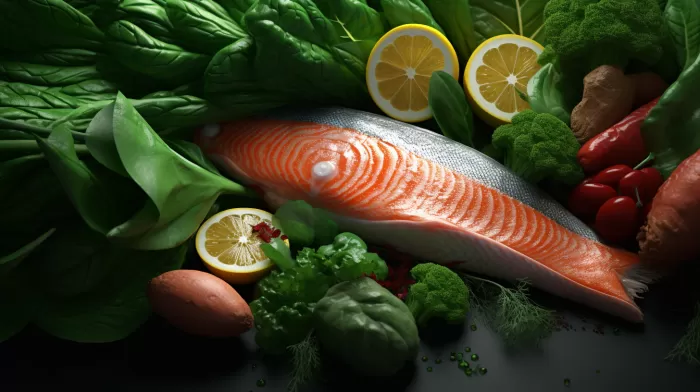Knee pain can have a significant impact on your life, often changing it for the worse. To help alleviate knee pain and avoid surgery, consider trying these natural solutions before resorting to orthoscopic or reconstructive knee surgery.
Improving your diet
Diet plays a role in inflammation and pain, so choosing the right foods can help reduce both. An anti-inflammatory and pain-reduction diet is not only healthy but also tastes great. Include the following foods in your diet:
- Green leafy vegetables: Collard greens, spinach, kale, Swiss chard, rainbow chard, turnip greens, and mustard greens.
- Fish, Fish oil, Seafood: Omega-3 fatty acids (in seafood or supplements), salmon, tuna, sardines, herring, trout, and mussels.
- Thermogenic spices: Garlic, ginger, turmeric, mustard, cayenne, onion, cloves.
Dietary changes are a long-term plan for preventing inflammation and reducing pain. It takes time for the foods to build up enough in the system to make a change, so start right away and maintain your anti-inflammatory food lifestyle change.
Supporting the joint
Keeping the upper and lower muscles of the knee joint in balance is essential for maintaining a strong structure and reducing unnatural movements. Imbalances in the calf, thigh, and hamstring muscles can cause the knees to be pulled unnaturally to one side while being much weaker on the other. This occurs when one’s quadriceps are overdeveloped but their hamstrings are weaker, or when their calves are too tight or too weak, which can create strain by pull or not match the larger thigh muscles in carrying a load or moving the body. There are easy exercises to help balance the knee structures, such as this one.
Exploring the emotional component to pain
Pain is not always caused by physical strain alone. In fact, many people and physicians ignore the emotional and psychosomatic causes of pain. Tension Myositis Syndrome (TMS) is a musculoskeletal neurological disorder created by the mind and emotions that changes one’s physiology and causes pain and other symptoms. It is believed that stress and repressed emotions like anger and anxiety are the root causes of chronic pain and other disorders like tension headaches, fibromyalgia, irritable bowel syndrome (IBS), constipation, arm pain, temporal mandibular joint dysfunction (TMJD) and tinnitus (ringing in the ears). Studies have shown that when emotional components are dealt with successfully, the physical ailments disappear almost instantly. Learn more about TMS in this article.
If needed, lose some weight
Whether you are very overweight or just a little heavy, losing weight will decrease knee pain, improve knee joint function, and reduce inflammation because it reduces the load placed on the joint. Each pound of body fat equals about five pounds of load on the joints. So, losing even a little weight will help immediately, and losing 10% of your body weight or more (when healthy to do so) can bring significant results.
In conclusion, there are multiple factors at play when it comes to knee pain. By addressing these factors through a combination of dietary changes, exercise, understanding the emotional component, and if necessary, weight loss, it is possible to alleviate knee pain and avoid resorting to surgery.



